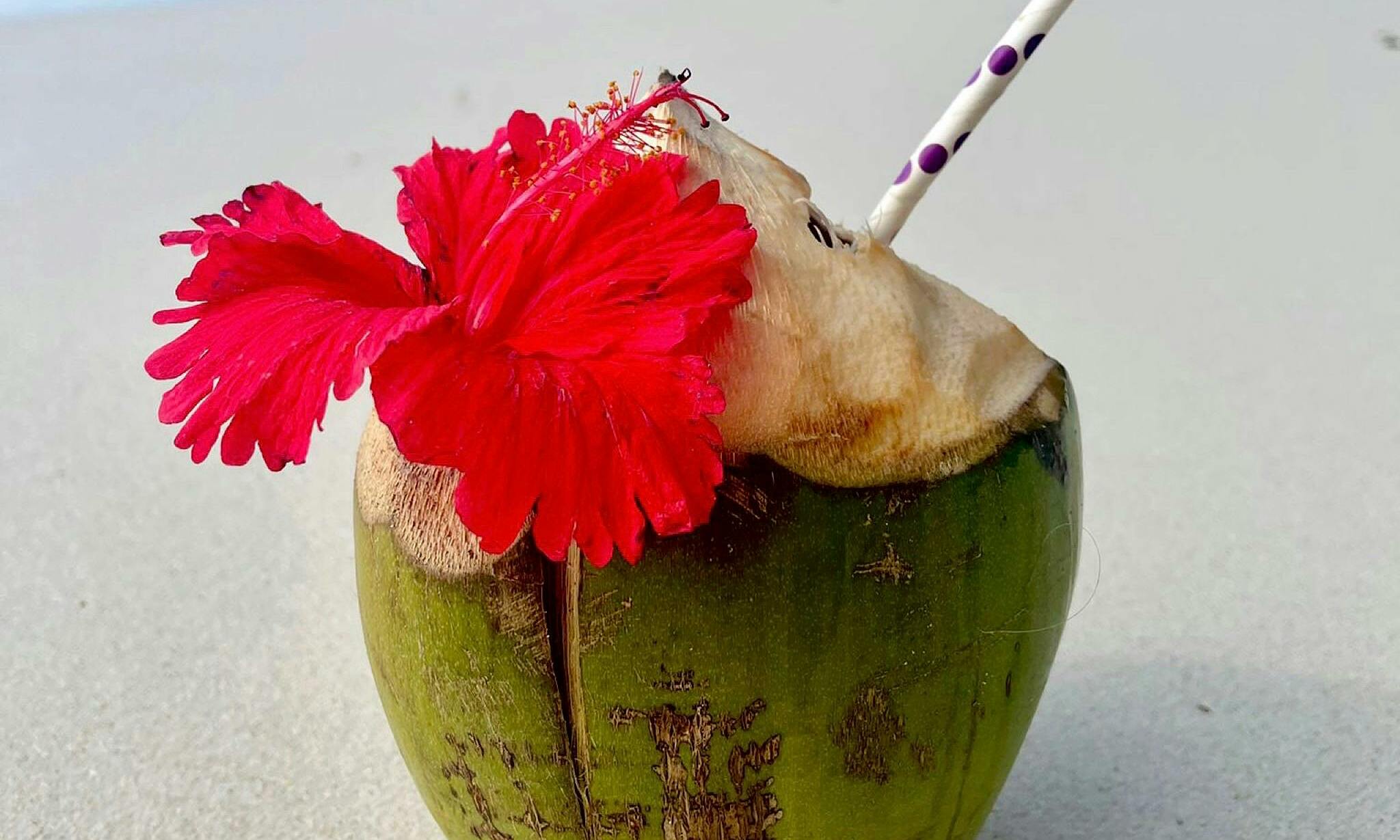Can I consume coconut water with liver disease, and what is the proper way to do so? (Pham Phong, Ho Chi Minh City)
Answer:
Coconut water serves as anatural, revitalizing drink that provides various health advantages such as enhancing hydration, boosting digestion, and supporting cardiac well-being. Individuals suffering from liver issues may incorporate coconut water into their regular meals; however, they should do so cautiously to ensure maximum benefit and prevent possible adverse effects.
Coconut water is abundant in vital nutrients like potassium, magnesium, sodium, and phosphorus, aiding in maintaining electrolyte levels and supplying energy. Furthermore, it includes antioxidants that combat inflammation and shield the body against oxidative damage from free radicals.
It is also low in calories and fats, allowing it to fit well into a balanced eating plan. The minimal levels of glucose and fructose found in coconut water offer an energy boost without leading to major fluctuations in blood sugar levels. Additionally, its inherent enzymes and antioxidants aid in decreasing liver inflammation and enhancing detox processes, offering particular advantages for those suffering from conditions like fatty liver disease, hepatitis, or liver injury resulting from viruses.

|
|
A coconut on the shoreline. Stock image courtesy of Pexels. |
People with
liver disease
Frequently feel tired, lacking energy, and experiencing mineral deficiencies. Coconut water aids in fighting off dehydration and supplies crucial nutrients that may help maintain proper metabolic processes within your system. The naturally occurring sugars found in coconut water have fewer calories and are more readily absorbed by the body than those from sweetened or alcoholic beverages, putting less stress on the liver.
Adults ought to restrict their coconut water intake to the equivalent of one or two coconuts daily. Individuals with liver ailments should seek advice from a medical professional to establish an acceptable quantity tailored to personal health needs. Overconsumption of coconut water might result in hyperkalemia, which impacts both blood pressure and kidney performance. Because of its inherent cooling effects, consuming coconut water towards nightfall could trigger digestive issues such as abdominal discomfort or indigestion in certain people.
For individuals with liver diseases, choosing fresh coconut water over canned or processed alternatives is advisable because the latter frequently includes extra sugars and preservatives that might adversely affect the liver. Those dealing with advanced conditions like severe cirrhosis, terminal stage liver failure, an electrolyte imbalance, or renal issues should seek medical advice prior to drinking coconut water.
Although coconut water provides numerous advantages, it
must not substitute for regular water
In one’s everyday nutrition routine, individuals with liver conditions ought to adhere to their physician’s advice regarding fluid intake. Besides staying properly hydrated, they must also ensure a well-balanced meal plan, consistent physical activity, abstaining from alcohol and smoking, and scheduling frequent healthcare appointments—all of which are crucial for sustaining liver wellness.
Including natural components like Wasabia and S. Marianum may assist in supporting liver detoxification, decreasing inflammation, and safeguarding liver function through regulating overly active Kupffer cells. These elements aid in averting liver ailments and enhancing general hepatic well-being.







